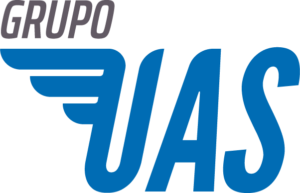The Spanish Aviation Safety Agency (AESA) published a key guide for drone operators performing activities not covered by European regulations (Non EASA). This initiative comes after the approval of Royal Decree 517/2024, which regulates, for the first time specifically, how these operators must act within the national territory.
At Grupo UAS, we believe this is a turning point for the industry and we want to help you understand what it all means… without complications. Do you have doubts? Do you need help interpreting the new regulations?
What is a Non EASA operator?
When we talk about “Non EASA operators” we refer to public or private entities that use drones for purposes such as:
- Search and rescue
- Public safety (police, civil protection)
- Fire fighting
- Coastal, border or customs surveillance.
These types of activities do not fall within the common European framework for UAS operations, and therefore require national regulation.
What does the new Royal Decree 517/2024 say?
This decree, in force since June 4, 2024, establishes a regulatory framework of its own for Spain in relation to these special uses of drones. Among the most outstanding novelties:
- Two new standard operating scenarios (STS) are created:
- STS-ES-01NE: Flights within visual range (VLOS), for example in operations in urban areas.
- STS-ES-02NE: Flights out of visual range (BVLOS), for example in rural environments with low population density.
- Updated requirements on:
- Pilot training
- Technical documentation
- Operating conditions
- Airspace management
When do I have to adapt?
The deadline for operators to fully comply with the new regulations is June 25, 2025. However, the provisions related to the use of airspace are already active since the entry into force of the decree.
In the meantime, during the transitional period, the previous Royal Decree 1036/2017 continues to apply.
What should operators do now?
Grupo UAS recommends you to take these steps as soon as possible:
- Review the official AESA guide: it contains detailed information to facilitate adaptation.
- Evaluate the training of your pilots: they may need additional training to meet the new requirements.
- Update your procedures: make sure documentation and operations are in order.
- Consult with specialists: this new regulation involves several technical and legal changes. Having expert support can prevent costly mistakes.
Practical tips for pilots and operations managers
- Don’t leave adaptation to the last minute: the earlier you start, the more room you have to comply safely.
- Stay informed: regulatory changes are frequent in this sector. We encourage you to follow our blog.
- Invest in quality training: safety and legal compliance start with well-prepared pilots.
As experts in technical and regulatory consultancy in the drone sector, at Grupo UAS we offer you personalized advice, compliance audits and training adapted to these new scenarios No EASA.
Write to us, we will be happy to help you.
Frequently Asked Questions about the New Non-EASA Drone Regulation
A Non-EASA operator is a public or private entity that uses drones for specific purposes such as search and rescue, public safety, firefighting, or border surveillance. These activities are not covered under the common European regulation and require national oversight.
Royal Decree 517/2024 establishes a national regulatory framework for Non-EASA operators, introducing two new standard operational scenarios (STS-ES-01NE and STS-ES-02NE), and updating requirements related to pilot training, technical documentation, operational conditions, and airspace management.
Operators must comply fully by June 25, 2025. However, provisions related to airspace usage have been in effect since the decree came into force on June 4, 2024.
Operators should review AESA’s official guide, assess pilot training needs, update operational procedures and documentation, and seek expert advice to ensure compliance with the new regulation.
Grupo UAS recommends not waiting until the last minute, staying up to date with official information, investing in quality training, and seeking expert technical and regulatory support.


